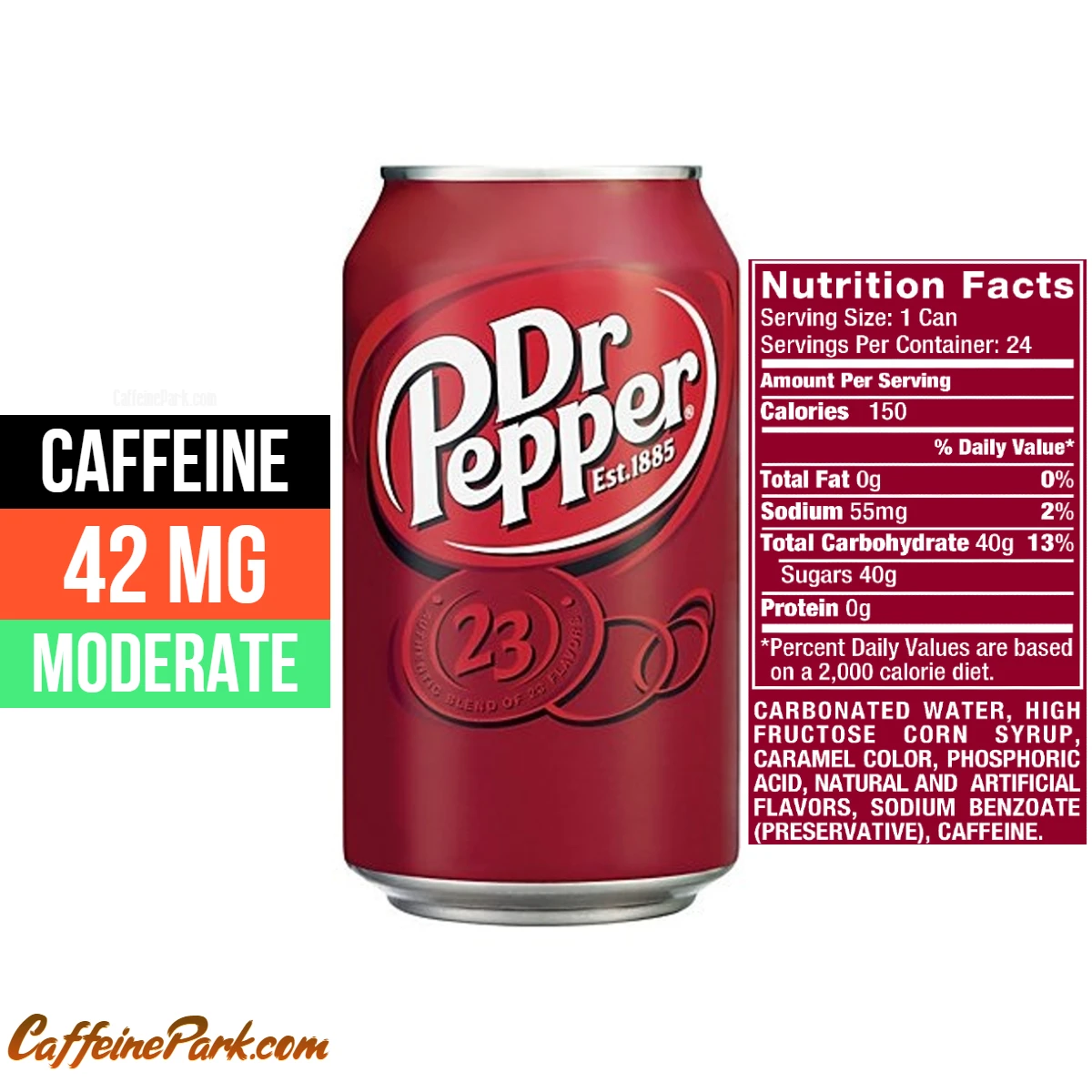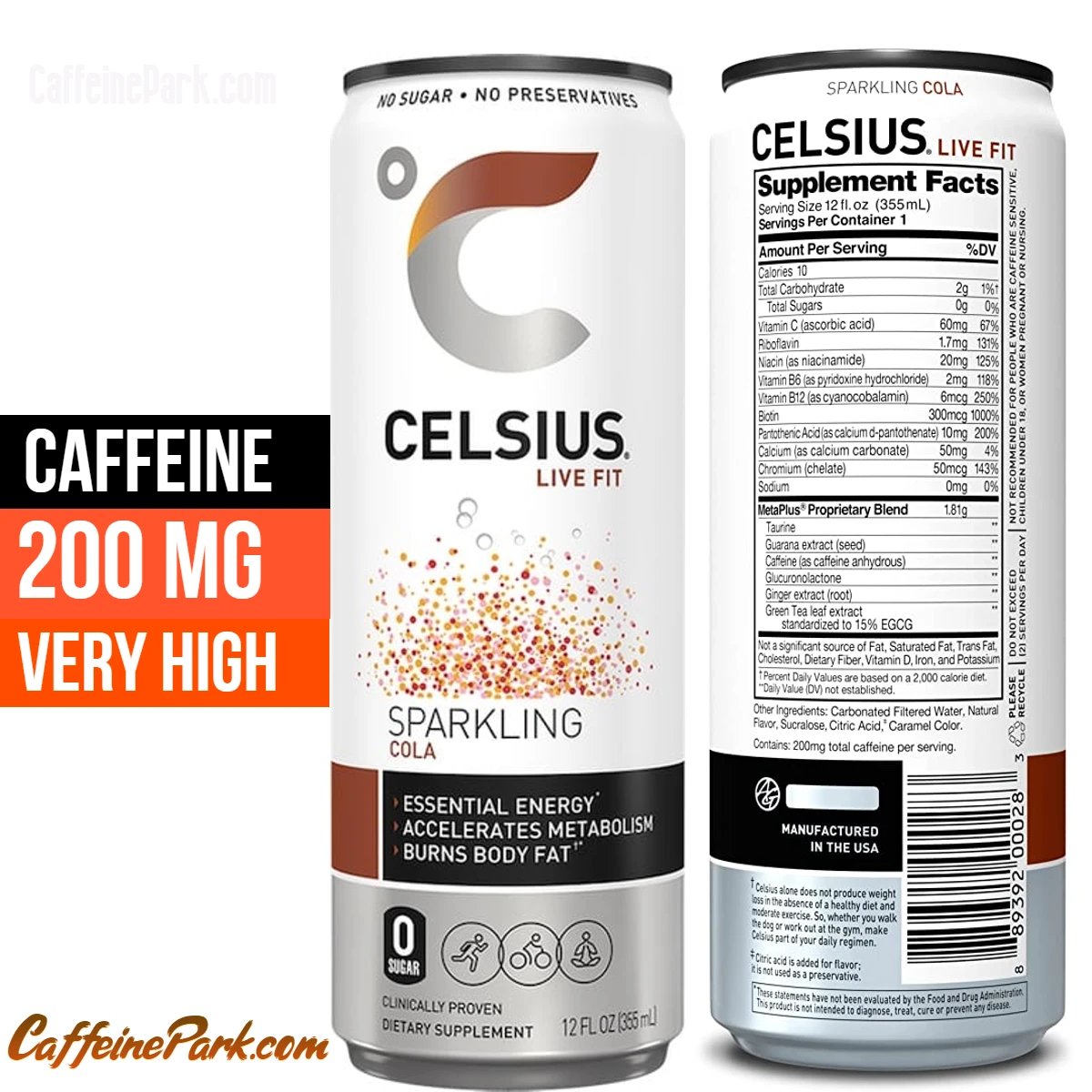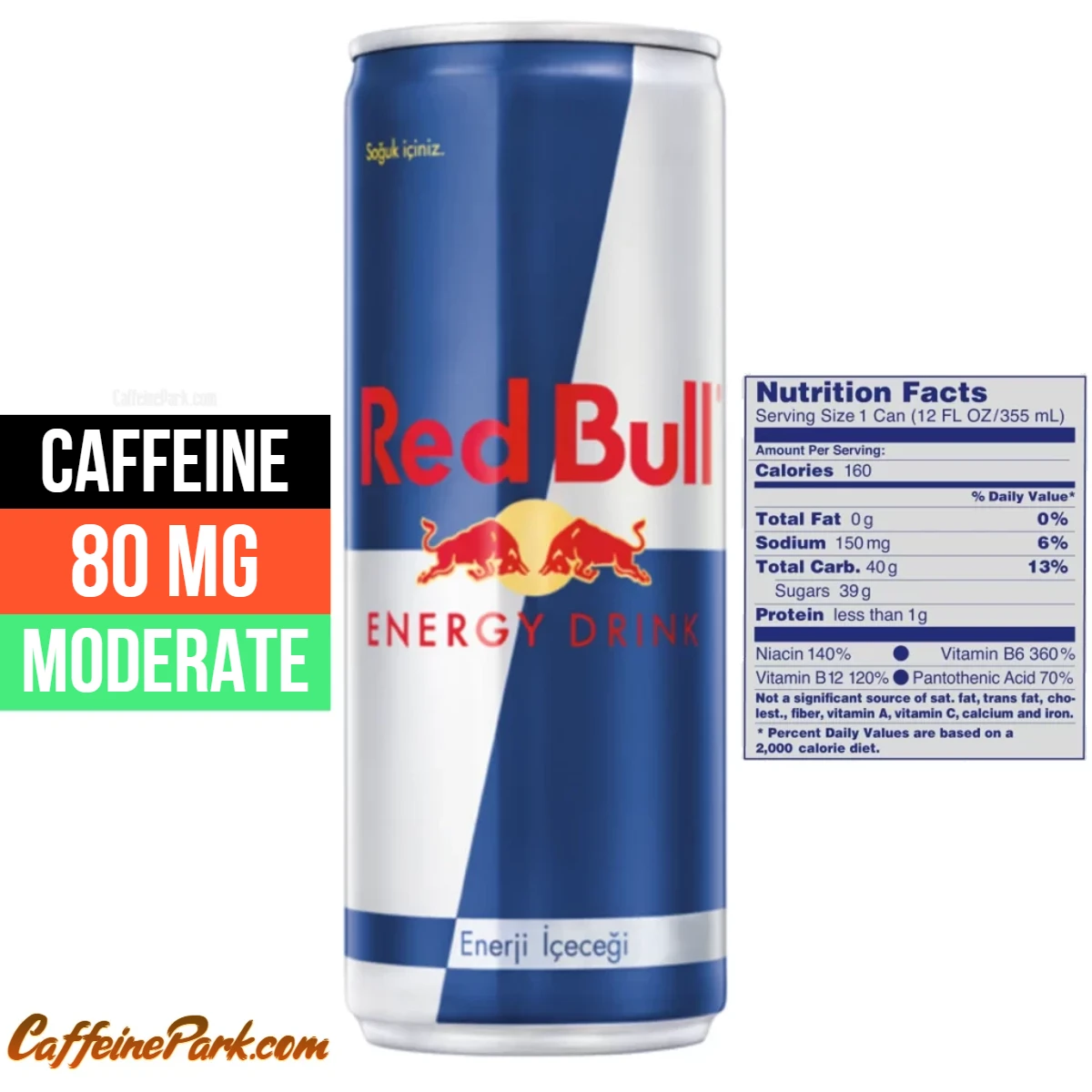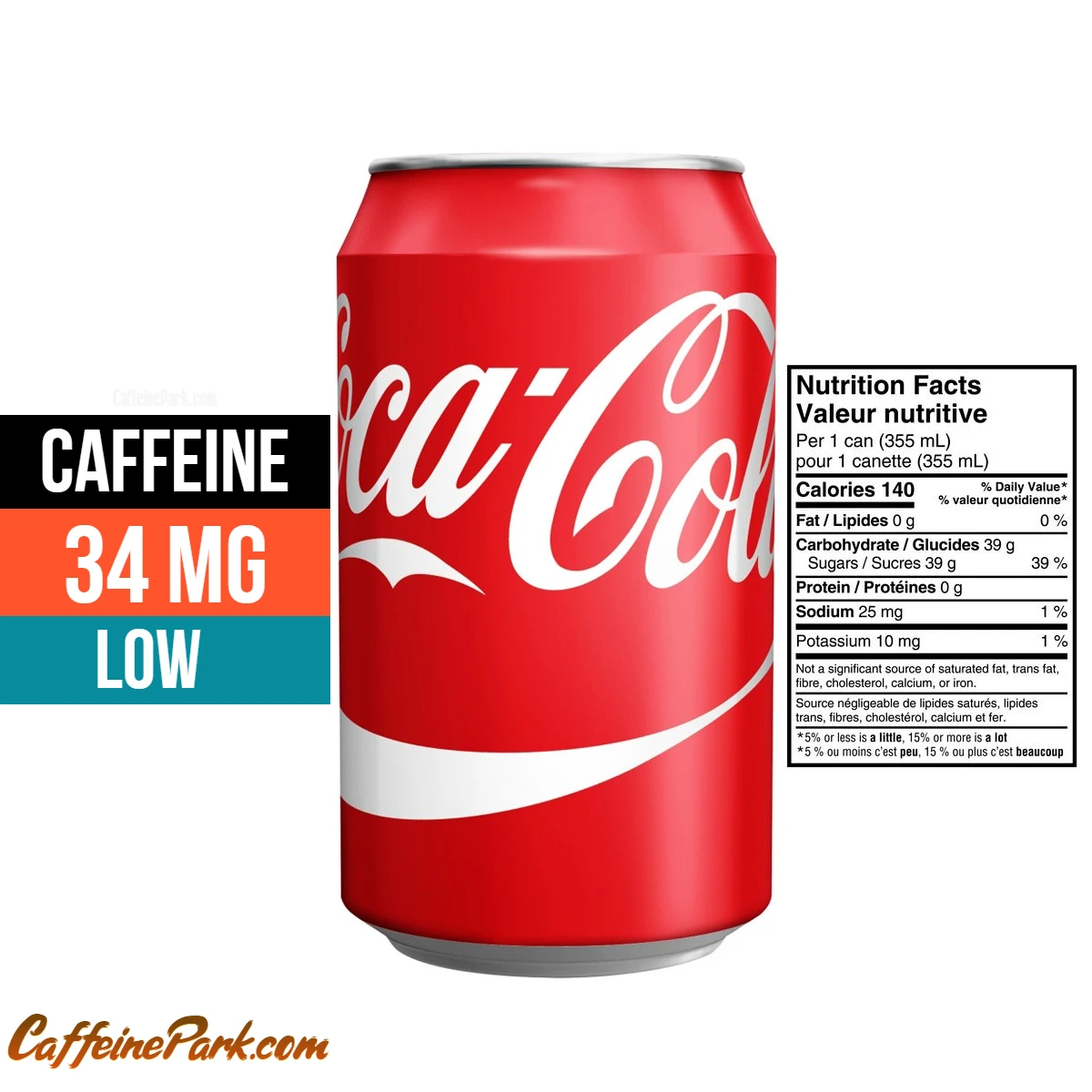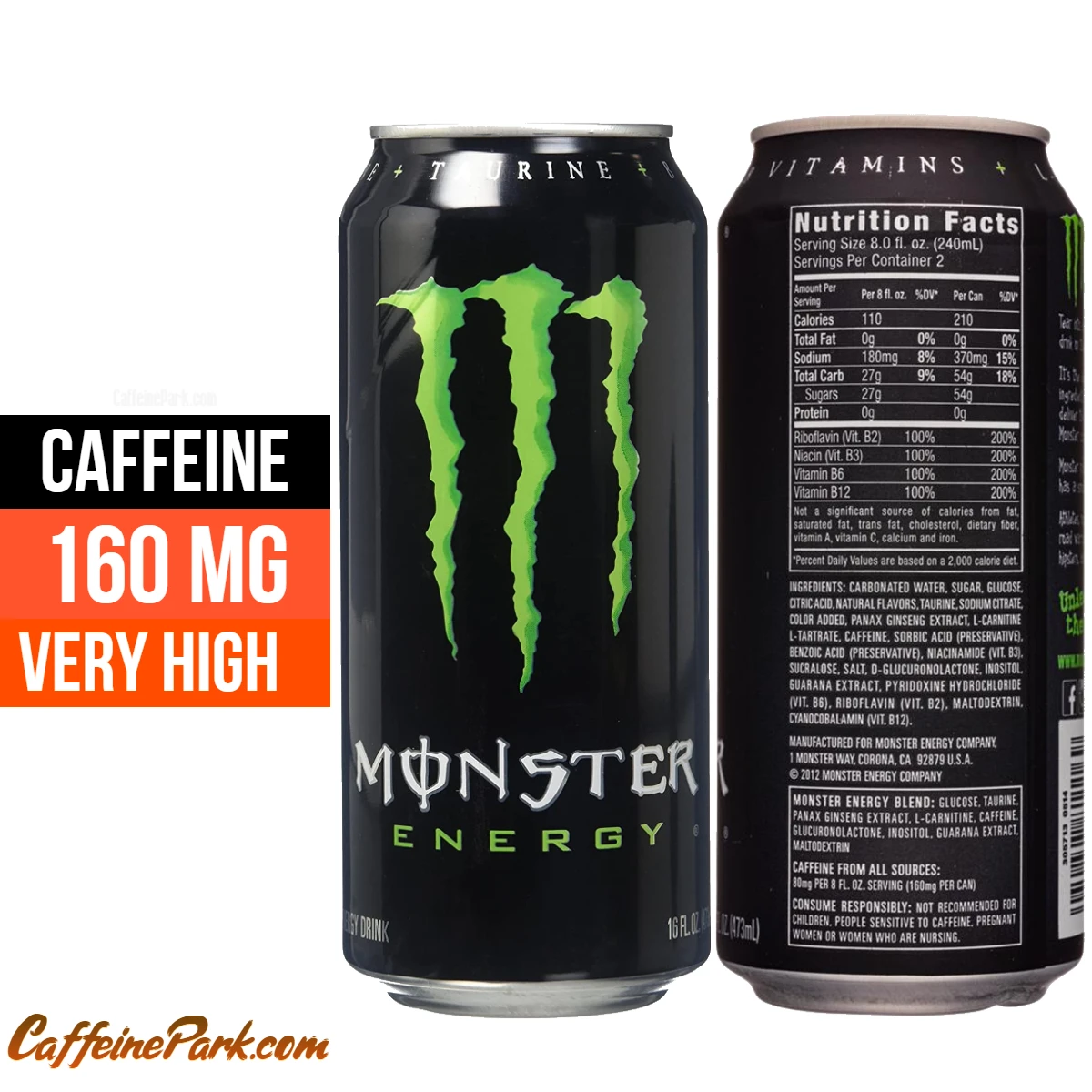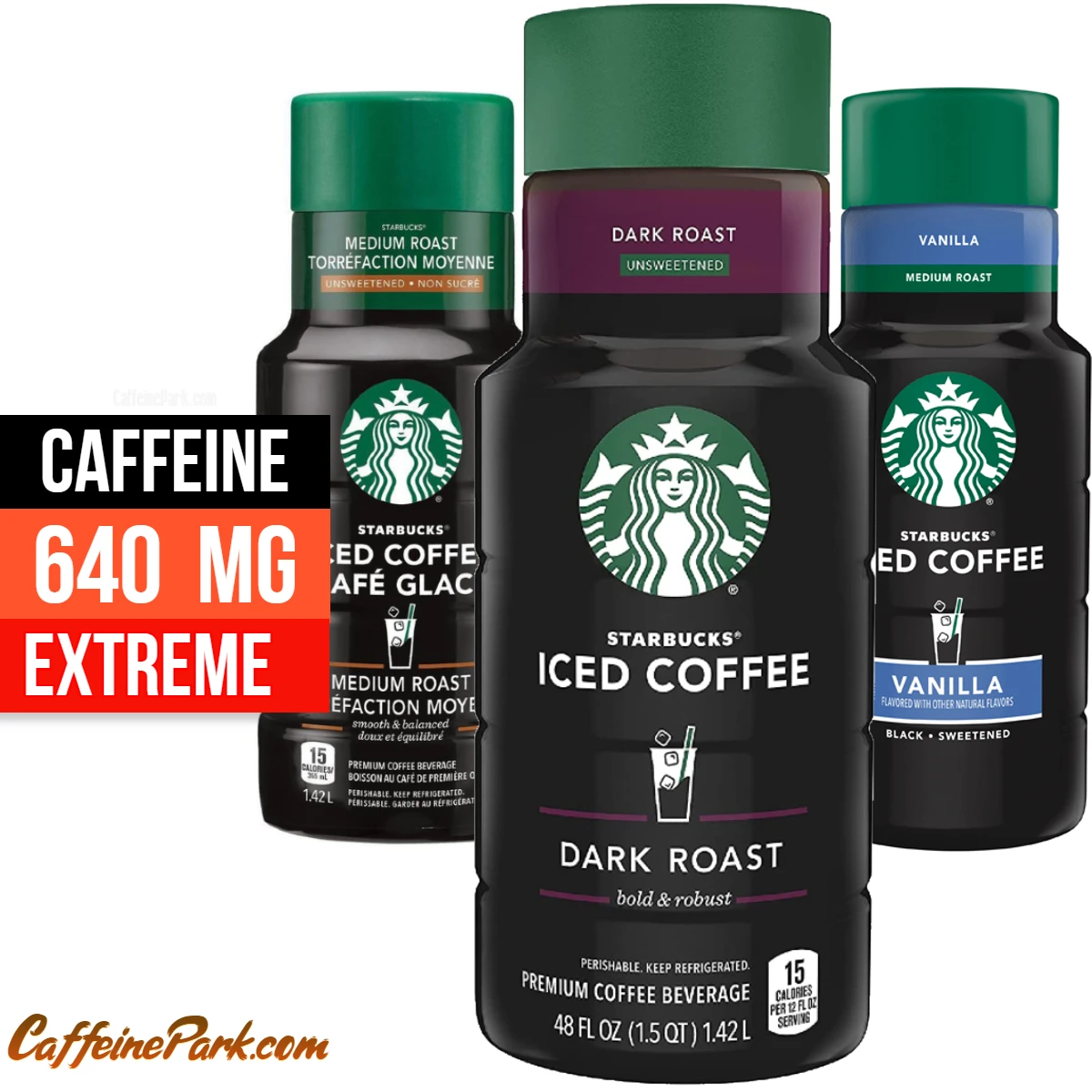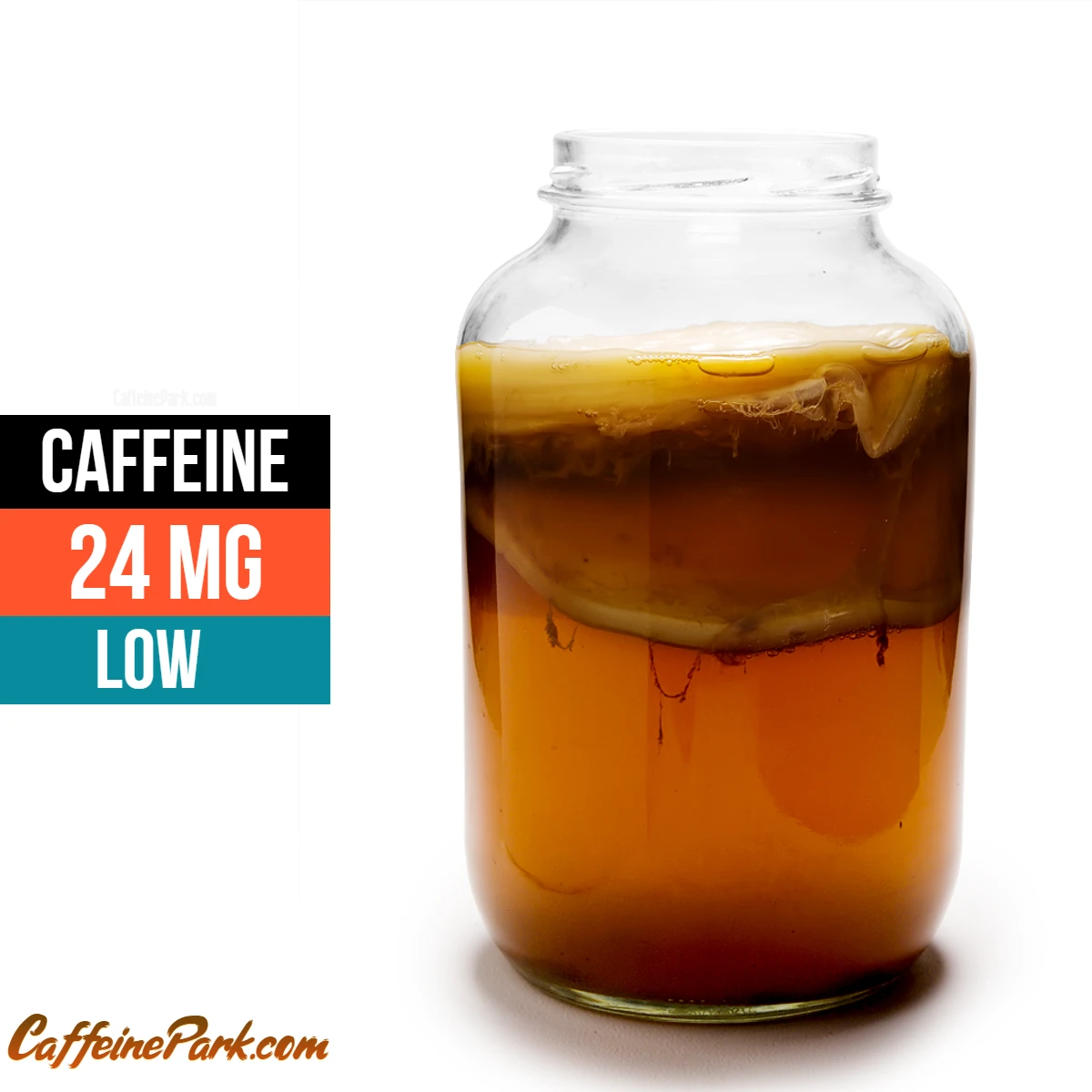
Kombucha is a fermented tea that is made by adding a symbiotic culture of bacteria and yeast (SCOBY) to sweetened tea. The mixture is then fermented for several days, resulting in a slightly effervescent and slightly sour beverage that is rich in probiotics and antioxidants. One of the benefits of kombucha is that it can be a lower-caffeine alternative to traditional tea or coffee. The caffeine content of kombucha varies depending on the type of tea used to make it, and the length of time it is fermented.
- Black tea, which is commonly used to make kombucha, has a caffeine content of around 40-60 milligrams per 8-ounce cup. However, when kombucha is made using black tea, the fermentation process breaks down some of the caffeine, so the final product typically contains less caffeine than a cup of black tea, Kombucha made with black tea contains 20-35 milligrams of caffeine per 8 fl oz cup.
- Green tea, another type of tea that is sometimes used to make kombucha, has a lower caffeine content than black tea, around 20-50 milligrams per 8-ounce cup. So when kombucha is made using green tea, it will have a lower caffeine content than kombucha made with black tea. So Kombucha made with Green tea contains 10-20 milligrams of caffeine per 8 fl oz cup.
It’s important to note that the caffeine content of kombucha can also be affected by the length of time it is fermented. The longer kombucha is fermented, the more caffeine is broken down, resulting in lower caffeine content. Therefore, if you are looking for a low-caffeine alternative, you may want to look for kombucha that is made with green tea and fermented for a longer period of time.
If you’re interested in starting your own kombucha blog, you can experiment with different types of tea, fermentation times, and SCOBYs to find the perfect balance of flavor and caffeine content that you enjoy. Additionally, you could share your personal experience, tips, and recipes for brewing kombucha, as well as the health benefits you experienced from consuming it in the comments section.
Does Kombucha Tea have caffeine?
Yes, Kombucha Tea contains 24mg of caffeine per 8 fl oz cup and 3mg of caffeine per fl oz (10.14mg per 100ml).
| Serving size | Caffeine Amount | Caffeine strength |
|---|---|---|
| 1 fl oz | 3 mg | LOW |
| 8 fl oz cup | 24 mg | LOW |
| 12 fl oz cup | 38 mg | LOW |
- Caffeine Amount: 24 mg
- Caffeine strength: LOW
- Serving size: 8 fl oz cup
Caffeine in Kombucha vs. Other Teas
Here is a comparison of caffeine content in Kombucha Tea and various other teas per 8 fl oz cup:
| Items | Serving Size | Caffeine |
|---|---|---|
| Kombucha Tea | 8 fl oz | 24mg |
| Yellow Tea | 8 fl oz | 63mg |
| Green Tea | 8 fl oz | 18mg |
| White Tea | 8 fl oz | 28mg |
| Oolong Tea | 8 fl oz | 37mg |
| Jasmine Tea | 8 fl oz | 25mg |
| Instant Tea | 8 fl oz | 40mg |
| Decaf Tea | 8 fl oz | 4mg |
| Black Tea | 8 fl oz | 42mg |
| Matcha Tea | 8 fl oz | 64mg |
| Teavana Tea | 8 fl oz | 41mg |
| Guayusa Tea | 8 fl oz | 41mg |
From the comparison, it is evident that the caffeine content in Kombucha Tea falls within the moderate range. Yellow tea and matcha tea have higher caffeine levels, while green tea, white tea, jasmine tea, oolong tea, instant tea, decaf tea, black tea, Teavana tea, and guayusa tea have varying amounts of caffeine.
If you are specifically looking for a low-caffeine option, green tea, and kombucha tea are good choices. On the other hand, if you are seeking a stronger caffeine boost, yellow tea, matcha tea, black tea, Teavana tea, instant tea, oolong tea, jasmine tea, and guayusa tea would be more suitable.
Review
Kombucha is a fermented tea that has been enjoyed for thousands of years in various cultures. It is made by adding a symbiotic culture of bacteria and yeast (SCOBY) to sweetened tea, which is then fermented for several days. The result is a slightly effervescent and slightly sour beverage that is rich in probiotics and antioxidants.
History
The origins of kombucha can be traced back to ancient China, where it was known as “the tea of immortality.” It was also consumed in Russia, Japan, and other parts of Asia. In recent years, kombucha has gained popularity in the Western world as a health-promoting drink.
Taste and Flavor
Kombucha has a slightly effervescent, slightly sour taste with a hint of sweetness. The flavor can vary depending on the type of tea used to make it, as well as the length of time it is fermented. The flavor profile of kombucha can be described as having notes of vinegar, apple cider, and even a hint of lemon. The taste can be quite strong for some people, but many people find it to be a refreshing and tasty beverage.
The type of tea used to make kombucha can also affect the taste. The most common type of tea used is black tea, which gives the kombucha a bolder, more robust flavor. Green tea, on the other hand, gives the kombucha a lighter, more delicate flavor. Herbal teas can also be used to make kombucha, and they can add different notes of flavor, such as chamomile, mint, or hibiscus.
Another factor that affects the taste of kombucha is the length of fermentation. The longer the fermentation period, the more sour the kombucha will be. Therefore, if you want a sweeter kombucha, you should shorten the fermentation period.
Additionally, the addition of fruits, herbs, and spices can also be used to enhance the flavor of kombucha. For example, adding berries can give a fruity flavor, ginger can add a spicy note, or mint can give a refreshing taste.
Overall, the taste and flavor of kombucha can vary depending on the type of tea used, the length of fermentation, and any added ingredients. Many people enjoy the unique taste of kombucha, but it can take some time to get used to if you’re new to it.
Ingredients and Nutrition
Kombucha is made with just a few simple ingredients: tea, sugar, water, and a SCOBY. The nutritional content of kombucha can vary depending on the ingredients used and the fermentation process. Generally, it is a good source of probiotics, antioxidants, and other beneficial compounds.
Benefits
There are many potential health benefits associated with kombucha. Some of the most commonly cited benefits include improved digestion, boosted immune system, and aid in weight loss. Kombucha is a fermented tea that is rich in probiotics, antioxidants, and other beneficial compounds. These compounds may have a variety of health benefits, such as:
- Improved digestion: The probiotics in kombucha can help to balance the gut microbiome, which can improve digestion and reduce symptoms of constipation, bloating, and diarrhea.
- Boosted Immune System: The probiotics in kombucha can help to boost the immune system by increasing the production of white blood cells.
- Weight Loss: Kombucha is low in calories and sugar, and it can help to curb appetite and cravings, which may aid in weight loss.
- Mental Health: The probiotics in kombucha may help to reduce symptoms of depression and anxiety.
- Anti-inflammatory: Kombucha contains antioxidants, which can help to reduce inflammation in the body, which can help to reduce the risk of chronic diseases such as heart disease, cancer, and diabetes.
- Detoxification: Kombucha contains glucaric acid, which helps to detoxify the liver, and it can help to cleanse the body of toxins.
It’s important to note that while there is some preliminary research suggesting these potential benefits, more research is needed to confirm these benefits and to understand the exact mechanisms by which kombucha may provide these benefits. Also, not all kombucha is created equal, as it can have variable levels of alcohol and sugar, it’s always recommended to consult a doctor before trying it, especially if you have a compromised immune system.
Side Effects
Kombucha is generally considered safe for most people to consume. However, there have been a few reported cases of adverse reactions, such as allergic reactions, stomach upset, or even infections. It is important to note that not all kombucha is created equal, as they can have variable levels of alcohol and sugar. Therefore, it is always recommended to consult a doctor before trying it, especially if you have a compromised immune system.
Price and Availability
Kombucha can be found at many natural food stores and grocery stores, as well as online. The price can vary depending on the brand and the size of the bottle. Some kombucha is more expensive than others, but there are also some more affordable options available.
Comparison to Others
When it comes to comparing kombucha to other fermented foods and drinks, it’s important to note that each has its own unique set of benefits and characteristics.
One common comparison is to yogurt. Both kombucha and yogurt are fermented foods that are rich in probiotics. However, kombucha is made with tea and has a distinct flavor that is different from yogurt. Additionally, kombucha is a low-caffeine alternative to traditional tea or coffee, while yogurt is a source of calcium and other minerals.
Another comparison is to kefir. Both kombucha and kefir are fermented drinks that are rich in probiotics. Kefir is made with milk and has a thicker consistency than kombucha, it’s also a good source of calcium and other minerals. Kombucha, on the other hand, is made with tea and has a unique flavor that is different from kefir.
Kombucha is also sometimes compared to kimchi. Both are fermented foods that are rich in probiotics and other beneficial compounds. However, kimchi is a type of pickled vegetable, typically made with Napa cabbage, while kombucha is a fermented tea.
Finally, other fermented drinks like ginger beer, beet kvass and water kefir are also compared to Kombucha. They are similar in that they are all fermented drinks but the ingredients and fermentation process are different, which leads to a different taste and set of health benefits.
Overall, while kombucha has a unique set of benefits and characteristics, it can be beneficial to incorporate a variety of fermented foods and drinks into your diet for a diverse range of probiotics and other beneficial compounds.
Customer Reviews
Many people who try kombucha enjoy the taste and the potential health benefits. Some people find that it helps with digestion or improves their energy levels. However, not everyone likes the taste of kombucha, and some people may not notice any health benefits.
Pros and Cons
The pros of kombucha include its potential health benefits, unique taste, and the fact that it is a low-caffeine alternative to traditional tea or coffee. The cons include the fact that it can be expensive, and not everyone likes the taste. Additionally, it can vary in quality and alcohol content. It is always recommended to consult a doctor before trying it, especially if you have a compromised immune system.
How to consume Kombucha
Kombucha can be consumed straight from the bottle or poured over ice. It can also be used as an ingredient in recipes, such as salad dressings, marinades, or cocktails. If you are new to kombucha, it is recommended to start with a small amount and gradually increase your consumption to avoid any stomach discomfort. It’s also important to keep in mind that kombucha is a fermented drink, which means it contains a small amount of alcohol, which may be problematic for certain individuals.
How to make Kombucha
Making kombucha at home is relatively easy, and it is a great way to control the ingredients, taste, and alcohol content of the final product. To make kombucha, you will need a SCOBY, sweetened tea, and a large glass jar. The basic process involves adding the SCOBY and sweetened tea to the jar, covering it with a cloth, and allowing it to ferment for several days. After fermentation, the kombucha can be refrigerated and consumed.
Conclusion
Kombucha is a fermented tea that has been enjoyed for thousands of years. It is made with just a few simple ingredients, and it is a good source of probiotics, antioxidants, and other beneficial compounds. The taste can vary depending on the type of tea used, but it is generally described as slightly effervescent, slightly sour, and fruity. There are many potential health benefits associated with kombucha, but more research is needed to confirm these potential benefits. It is important to note that not all kombucha is created equal, as it can have variable levels of alcohol and sugar, and it’s always recommended to consult a doctor before trying it, especially if you have a compromised immune system.
How To Making kombucha at home
Course: TeaCuisine: AmericanDifficulty: Easy2
servings10
minutes333
hours20
minutes6
kcalMaking kombucha at home is a simple process that can be completed in a few basic steps. Here is a basic recipe for making kombucha:
Ingredients
1 cup of sweetened tea (black or green tea)
1 SCOBY
1 cup of starter liquid (from a previous batch of kombucha or store-bought kombucha)
1-gallon glass jar
Cheesecloth or coffee filter
Rubber band
Directions
- Brew a strong tea by steeping the tea leaves or tea bags in hot water for 5-10 minutes. Let it cool down completely.
- Once the tea is cooled, add it to the glass jar and add the starter liquid.
- Gently place the SCOBY on top of the tea mixture.
- Cover the jar with a cheesecloth or coffee filter and secure it with a rubber band.
- Place the jar in a warm, dark location (around 70-75 degrees Fahrenheit) and allow it to ferment for 7-14 days. The fermentation time will vary depending on the temperature and your desired taste.
- After fermentation, remove the SCOBY and reserve a cup of the liquid for the next batch.
- The kombucha can be consumed as is or it can be flavored with fruit juice, herbs, or spices.
- Bottle the kombucha and refrigerate it.
Notes
- It’s important to note that the fermentation process can vary depending on the type of tea and sugar used, as well as the temperature and humidity. It’s also recommended to start with a small batch and to taste the kombucha every day or every other day to see when it reaches your desired taste. Also, always keep your hands and equipment clean, and use only glass containers or stainless steel to avoid contamination.
FAQs
Kombucha Tea typically contains around 24mg of caffeine per 8 fl oz cup. This amount is equivalent to approximately 3mg of caffeine per fluid ounce or about 10.14mg per 100 ml. It’s important to note that the caffeine content may vary slightly depending on factors such as brewing time and the type of tea used in the fermentation process.
Kombucha is generally considered safe for most people to consume. However, there have been a few reported cases of adverse reactions, such as allergic reactions, stomach upset, or even infections. It’s always recommended to consult a doctor before trying it, especially if you have a compromised immune system.
The caffeine content of kombucha varies depending on the type of tea used to make it, and the length of time it is fermented. Black tea, which is commonly used to make kombucha, has a caffeine content of around 60-60 milligrams per 8-ounce cup. However, when kombucha is made using black tea, the fermentation process breaks down some of the caffeine, so the final product typically kombucha Tea made with black tea contains 20-35 milligrams of caffeine per 8 fl oz cup, So less caffeine than a cup of black tea.
Kombucha is a fermented drink and it contains a small amount of alcohol, typically around 0.5% to 2% alcohol by volume (ABV) depending on the fermentation process and the ingredients used. This is similar to the alcohol content in ripe fruit.
Kombucha should be stored in the refrigerator to slow down the fermentation process and preserve the probiotics. It can be stored for several months in the refrigerator, but it’s best to consume it within a few weeks of opening the bottle.
Yes, making kombucha at home is relatively easy and it is a great way to control the ingredients, taste, and alcohol content of the final product. You will need a SCOBY, sweetened tea, and a large glass jar. The basic process involves adding the SCOBY and sweetened tea to the jar, covering it with a cloth, and allowing it to ferment for several days.
Yes, you can add fruits, herbs, and spices to your kombucha to enhance the flavor. For example, adding berries can give a fruity flavor, ginger can add a spicy note, or mint can give a refreshing taste.
Is kombucha high in caffeine?
NO, Kombucha is caffeinated because the tea leaves used in making kombucha (black tea, green tea, white tea, oolong tea) naturally contain caffeine. Due to the fermentation process, kombucha contains natural acids and enzymes, along with a small amount of caffeine, which gives it a distinct taste. However, kombucha caffeine levels are very low, averaging only about 30mg per serving.
Does kombucha keep you awake?
No, kombucha is not likely to be responsible for you keeping awake at night. In general, ready-to-drink kombucha only contains 1/3rd the caffeine, as the tea from which it was brewed. Therefore, unless you have a high tolerance to caffeine, kombucha won’t keep you up at night.
Who should not drink kombucha?
There may be various reasons why you shouldn’t drink kombucha. However, if you’re a pregnant woman, an alcoholic, or have a history of liver disease or allergies, you should probably steer clear of this brew. You might also want to avoid drinking kombucha because it can contain caffeine.
Read More:

